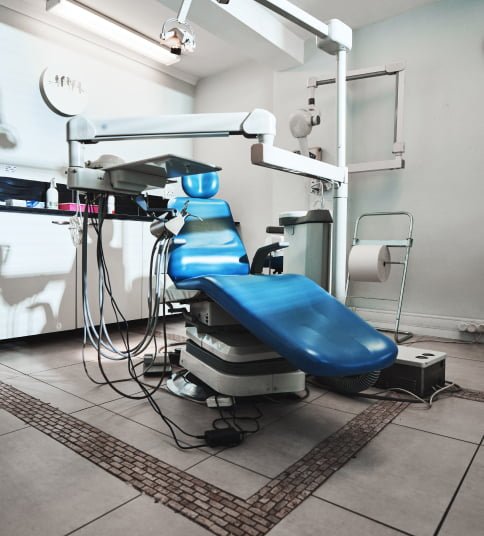- 7W82+HWR, Imambargah road, Bhalwal, Sargodha, Punjab 40410
Sat - Thu: 09:00am - 05:00pm
info@turabidentistry.com
If you are experiencing tooth pain, sensitivity, or swelling, or if an infection is detected through diagnostic tests, root canal treatment may be recommended.
The most common reason for endodontic treatment is inflammation and/or necrosis of the dental pulp. The dental crown is the place where microorganisms enter the pulp and root canals. Caries, trauma, restorative surgery, even microscopic fractures on intact teeth can open the way to dentinal tubules and root canals. As a result of the action of microorganisms, the pulp becomes infected. Dentists use root canal treatments to save teeth when the pulp at the centre of your tooth becomes severely damaged or infected. It is a relatively simple procedure and one that will alleviate your discomfort.
Dental pulp is the soft tissue in your tooth containing the blood vessels, connective tissue, and nerves that keep your teeth healthy.
How does pulp become damaged?
Bacteria may enter a cracked or chipped tooth and damage the pulp and nerve endings. Severe trauma or decay spreading into the pulp can result in irreversible damage to the pulp.
The bacteria can spread throughout the root canal system and eventually become infected resulting in a dental abscess.
Are there any symptoms that might indicate I need a root canal?
Root canals are usually scheduled due to patient discomfort at the site of the damaged tooth. Indications of an irreversibly damaged/infected pulp include:
Patients who have one of the following symptoms:
Before starting endodontic treatment, it is necessary to record the procedure for the dentist to get acquainted with the pathology and morphological features of the canal. At the A2 dental clinic, we use state-of-the-art digital imaging devices that reduce the radiation dose by up to 90% compared to classic X-rays.
Before starting therapy, the patient is always given local anaesthesia to make the procedure completely painless.It is important to provide a dry working field during therapy to prevent contamination of the tooth cavity with bacteria which greatly reduces the possibility of a positive treatment outcome. To ensure this we use a rubber dam that isolates the tooth being treated.
Therapy begins with the removal of the dental pulp and chemical and mechanical cleaning of the tooth canal. The procedure of cleaning the canal in the A2 dental clinic is performed by machine-driven rotary technology, which contributes to better quality and speeds up the procedure, which reduces discomfort for the patient.
Ready to find relief from tooth pain and preserve your natural tooth? Contact Turabi Dentistry to schedule a root canal consultation. Our experienced dental team is committed to providing compassionate and effective root canal therapy.

0486645172
Info@turabidentistry.com
Saturday
Sunday
Monday
Tuesday
Wednesday
Thursday
Getting a root canal usually takes two or more appointments. During the first appointment, your dentist will take X-rays and evaluate the area, developing a treatment plan. During the next appointment, your dentist will apply a local anaesthetic to the area to prevent any discomfort. Next, the dentist will remove the infected pulp, disinfect the area, then pack the cavity with dental material and medication. Finally, your dentist will restore the tooth’s shape, and function using a dental crown or filling.
You may experience some mild irritation or ache. If so, over-the-counter medications will relieve the symptoms.
Your dentist will always attempt to save your tooth when possible, especially since root canal treatment has a high success rate of 90%. Saving your natural tooth can prevent bite problems from your teeth shifting position, difficulty eating, and loss of jawbone volume and density.
Although the advancements in dentistry are incredible, extracting, and then replacing a tooth is more expensive than a root canal.